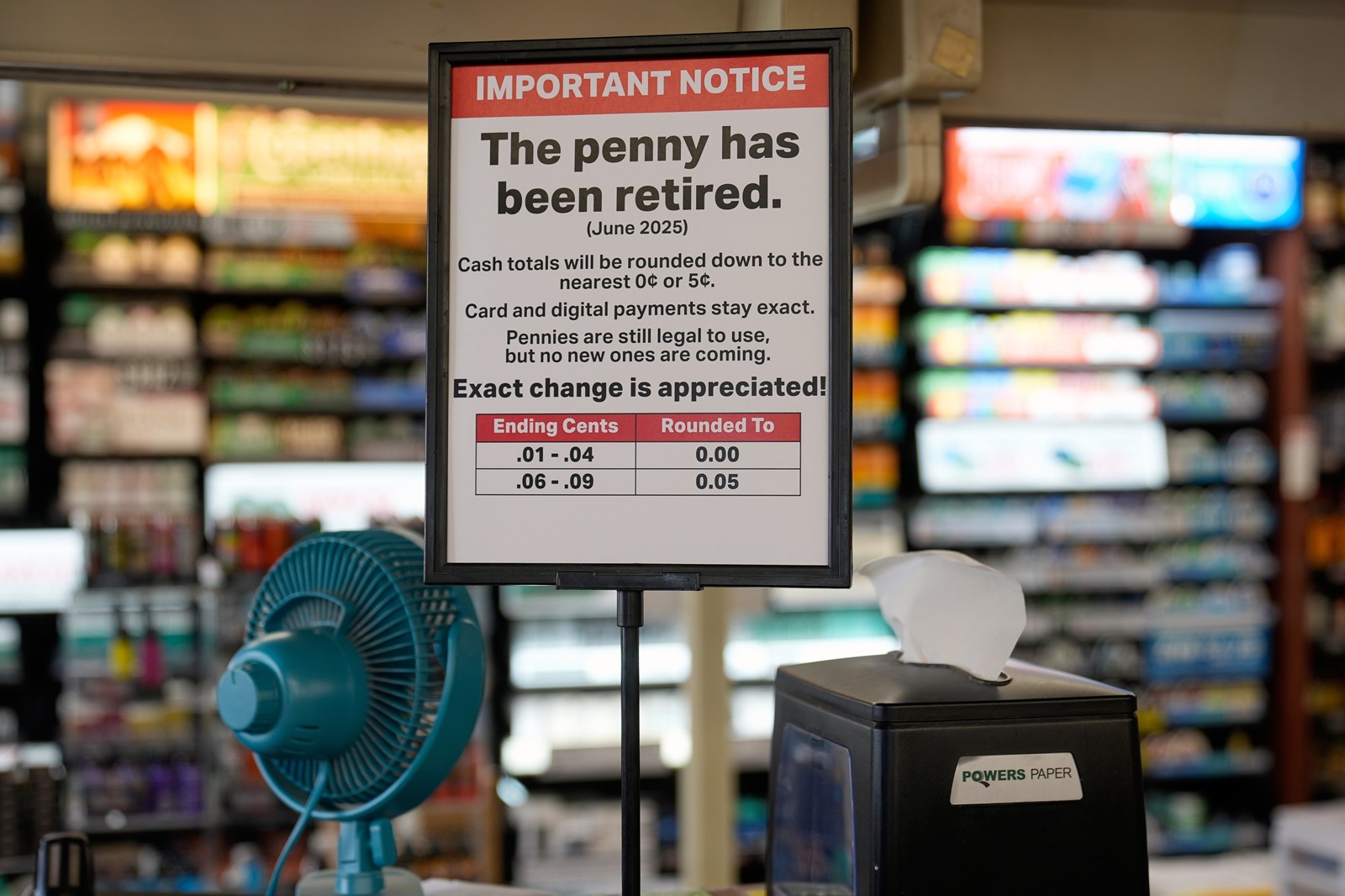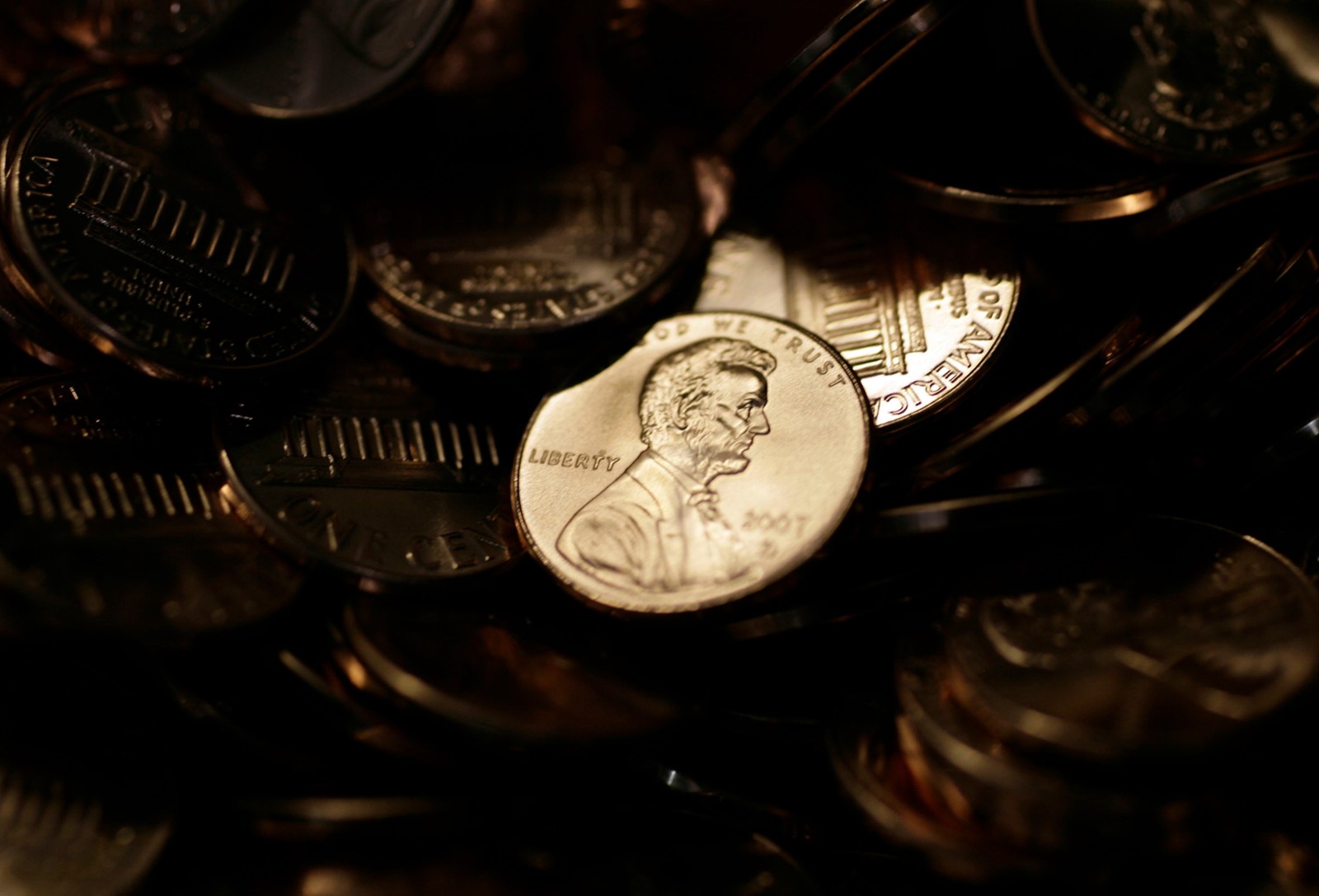

President Donald Trump’s decision to stop producing the penny earlier this year has merchants in multiple regions of the U.S. running out of pennies, unable to produce exact change.
Meanwhile, banks are unable to order fresh pennies and are rationing pennies for their customers.
Not one retailer or bank has called for the penny to stick around, but the abrupt decision to get rid of the penny has come with no guidance from the federal government. Many stores have been left pleading for Americans to pay in exact change.
“We have been advocating abolition of the penny for 30 years. But this is not the way we wanted it to go,” said Jeff Lenard with the National Association of Convenience Stores.
The U.S. Mint issued 3.23 billion pennies in 2024, the last full year of production, more than double that of the second-most minted coin in the country: the quarter. But the problem with pennies is they are issued, given as change, and rarely recirculated back into the economy. Americans store their pennies in jars or use them for decoration. This requires the Mint to produce significant sums of pennies each year.
The government is expected to save $56 million by not minting pennies, according to the Treasury Department. Despite losing money on the penny, the Mint is profitable for the U.S. government. In 2024, the Mint made $182 million in seigniorage, which is its equivalent of profit.
Planned Parenthood gets California help
Planned Parenthood is getting a $140 million lifeline to offset losses it sustained after Congress in July cut funding for the health system, Gov. Gavin Newsom announced Thursday.
The money will help Planned Parenthood keep 109 California clinics open. In a statement, Newsom said the move reflects the state’s continued commitment to abortion and reproductive health care.
“Trump’s efforts to defund Planned Parenthood put all our communities at risk as people seek basic health care from these community providers,” Newsom said.
Lawmakers will also take up the issue in January when the Legislature reconvenes.
The news comes a week after the nonprofit organization announced it would eliminate primary care at clinics in Orange and San Bernardino counties. Five other clinics also closed in July in the Bay Area, Santa Cruz and Central Valley, all in response to federal defunding.
California is the fourth state, following Washington, Colorado and New Mexico, to pledge public funds to keep Planned Parenthood afloat.
Chipotle says fewer diners eating there
Chipotle Mexican Grill shares plummeted after the fast-casual chain cut its outlook for a third time this year as diners pulled back from eating out, a fresh warning sign for consumer spending.
The Newport Beach-based burrito chain now sees sales for the full year slipping in the low-single digit range from a year earlier. It earlier projected that performance would be flat. In the third quarter, comparable-store sales rose slightly, but fell short of Wall Street’s expectations.
“The consumer slowdown is really affecting our business in a meaningful way,” Chief Executive Officer Scott Boatwright said in a call with analysts Wednesday.
This year through Wednesday, Chipotle had declined 34% compared with a 5.7% rise for a basket of consumer discretionary companies in the SP 500 Index.
Nvidia is first firm to hit $5 trillion mark
Nvidia Corp. achieved a historic $5 trillion market capitalization on Wednesday as Chief Executive Officer Jensen Huang’s spree of deals catapults the artificial intelligence frenzy to new heights.
The shares rallied as much as 5.6% to $212.19 as of 9 a.m. Pacific time, propelling Nvidia over the milestone. It’s only been four months since the company cracked the $4 trillion barrier, and the rally has accelerated as Huang forges new agreements to supply companies from Nokia Oyj to Samsung Electronics Co. and Hyundai Motor Group with chips.
Nvidia has become the most important stock in a bull market that’s been driven by optimism for AI to revolutionize the global economy. With a 50% gain this year through Tuesday’s close, the stock is single handedly responsible for nearly a fifth of the SP 500 Index’s 17% advance in 2025.
Compiled from Associated Press, CalMatters, Bloomberg and New York Times reports.


 PREVIOUS ARTICLE
PREVIOUS ARTICLE
